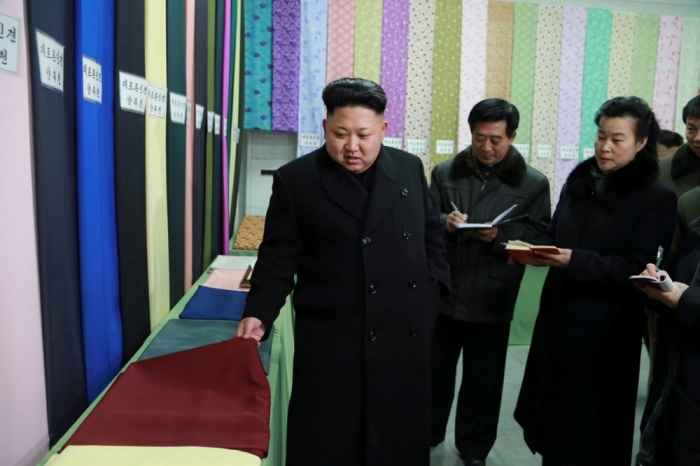Obama OKs New Sanctions Targeting N. Korean Leaders for Sony Hacking; Says Takes Seriously Attack on Finances, Free Speech

President Barack Obama Friday authorized new economic sanctions on North Korea, which the White House says was involved in the hacking of Sony Pictures to retaliate against the company's film, "The Interview."
Obama Friday signed an executive order imposing additional sanctions against some of the reclusive country's leaders, denying them access to the U.S. financial system and preventing their entry into the United States, according to Reuters.
"The order is not targeted at the people of North Korea, but rather is aimed at the government of North Korea and its activities that threaten the United States and others," Obama wrote in a letter to House Speaker John Boehner, according to CNN.
North Korea poses a "continuing threat to the national security, foreign policy and economy of the United States," the letter states.
Among the targets of the sanctions are the Reconnaissance General Bureau, an intelligence agency; officials at North Korea's Mining Development Trading Corporation, which allegedly deals with arms and weapons; and seven officials who represent that country's arms trade in Africa, Iran, Russia and Syria.
"We take seriously North Korea's attack that aimed to create destructive financial effects on a U.S. company and to threaten artists and other individuals with the goal of restricting their right to free expression," the White House said, according to NBC News.
The sanctions seek to "isolate key North Korean entities and disrupt the activities of close to a dozen critical North Korean operatives," Treasury Secretary Jack Lew was quoted as saying. "We will continue to use this broad and powerful tool to expose the activities of North Korean government officials and entities."
The U.S. has imposed sanctions on North Korea for more than 50 years, but that has changed little.
"It's not as if they travel a lot abroad to western Europe or the United States ... They don't have billions of dollars in western banks," Joel Wit of 38North, part of the U.S. Korea Institute at Johns Hopkins University in Washington, told Reuters.
Pyongyang has denied involvement in the cyber-attack.
North Korea's official KCNA news agency last month quoted an anonymous spokesman of the North's foreign ministry as saying that there would be "grave consequences" if the United States refuses to conduct a joint probe and continues to accuse Pyongyang.
Sony earlier announced that it was dropping the release of "The Interview," an action comedy about a plot to kill North Korean leader Kim Jong-Un, on Christmas Day. "Sony Pictures has been the victim of an unprecedented criminal assault against our employees, our customers, and our business," the company said in an earlier statement.
However, Sony later arranged screenings of the film at more than 300 independent theaters and also made it available online.
The hackers, who call themselves The Guardians of Peace, revealed four films along with numerous email threads and even salary details of Hollywood stars. The attack also compelled Sony to cancel the production of several of its film projects as the company's network could not process any payments.
The FBI has said there is enough information to "conclude that the North Korean government is responsible" for the cyber-attack.
The malware "revealed links to other malware that the FBI knows North Korean actors previously developed," the FBI said earlier, adding that it also noticed "significant overlap between the infrastructure used in this attack and other malicious cyber activity the U.S. government has previously linked directly to North Korea."





























